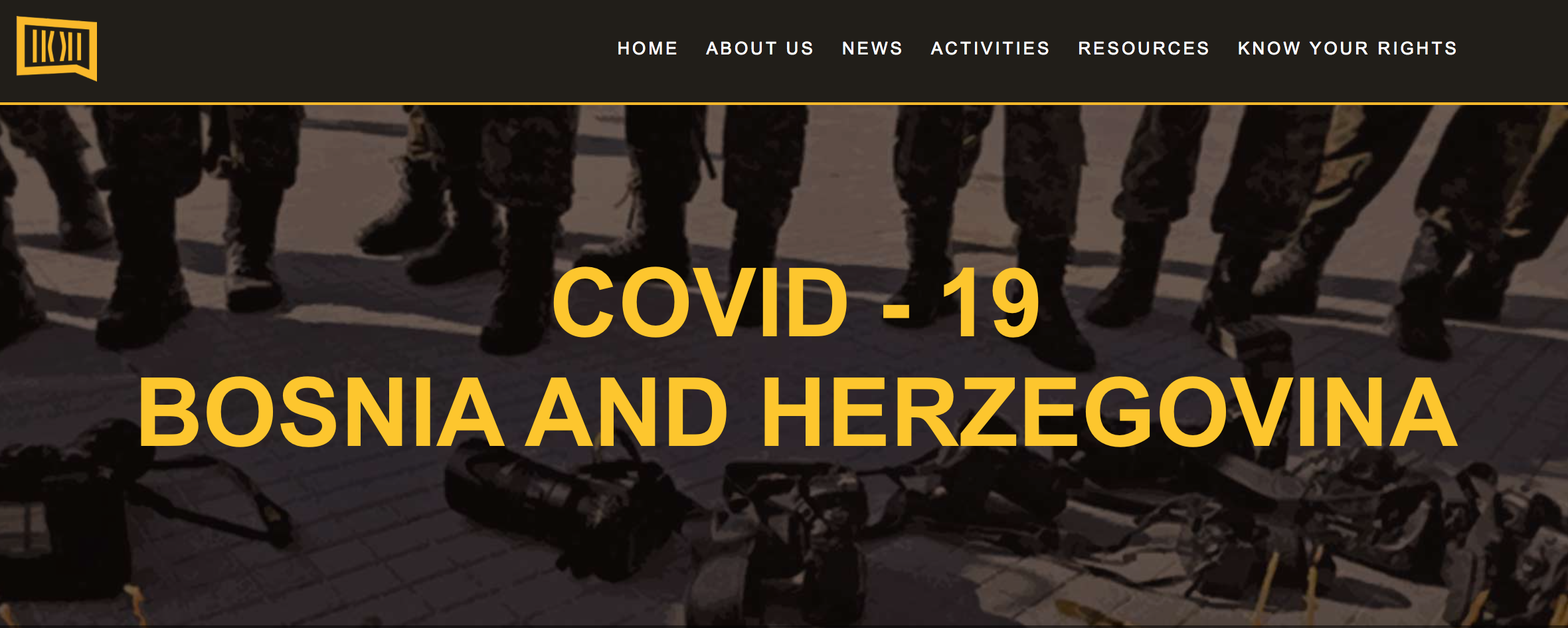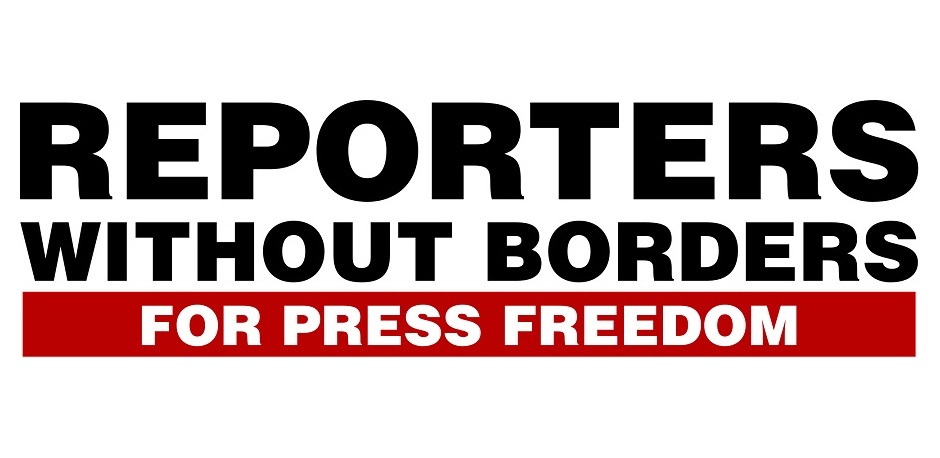With coronavirus pandemic in full blow, we talk to Borka Rudic of BHJA about its effects on media freedom in BiH. The pandemic reached the region in March, peaked in April and is now seemingly slowing down. It has taken over every daily routine: citizens are in lockdown, some countries introduced strict curfews, numbers of infected and deceased is increasing. In the middle of such unprecedented crisis, in countries of former Yugoslavia where transition to democracy and getting closer to the EU lingers, journalists and media are facing similar challenges. The most important is getting information of public interest to citizens and contribute to their safety and ending of the pandemic. While doing so, they are at risk too – not only from the virus. In a series of interviews SafeJournalists discusses how the pandemic influences media freedoms and journalists, are the authorities using the crisis to curb these freedoms and media owners to cut jobs. Finally, what their associations have done so far to help its members and other journalists now and in what follows.
THE STATE OF EMERGENCY: The state of emergency due to the Covid-19 pandemic throughout BiH was declared on March 17 – Republika Srpska has declared state of emergency while the Federation declared emergency situation. Since then, crisis staffs operating at the entity and cantonal levels have issued a series of measures and orders to reduce population movement and the possibility of transmission of the virus. Movement of people over 65 and under 18 years old are prohibited, all major shopping canters are closed, city transport suspended, store hours shortened and curfew introduced from 8 pm until 5 am. At the beginning of May this changed to 10 pm – 05 am Most employees are working from at home… As far as the media is concerned, many newsrooms have introduced safety measures and offered their employees the option to work from home or in shifts, but there are also many journalists who continue to report on current events daily from the field. However, while in RS journalists are not allowed to leave towns, in Federation they are. Restriction of movement does not apply to journalists carrying an employer’s official confirmation that they are on duty.
SafeJournalists: As a secretary general of BHJA you are in constant touch with journalists from all over the country. What is the overwhelming sentiment among journalists about their ability to perform their duties at the time of pandemic? What are their main concerns?
Borka Rudic: One of the main concerns of people working in media was how to report from events attended by a large number of journalists and participants, primarily press conferences of crisis staff, governments, ministries, health institutions representatives etc. The possibility of spreading the virus was quite present. At the beginning many media workers didn’t have protective equipment. BHJA made several very clear requests to the Crisis Coordination bodies, BiH Presidency and the governments of BiH entities to set up a media pool and not organise large press conferences. The Presidency of BiH, the Council of Ministers and the entity governments responded positively to this proposal and took our initiative into action. Press conferences were moved online by web streaming and with a limited number of media present. Also, many public service broadcasters and private televisions stopped inviting guests to the studio, and communicate with them via Skype.
SF: Using modern communication tools that limit physical contact is becoming a practice. However, in countries like Serbia and North Macedonia journalist associations have notices dangers to public interest. In North Macedonia not all journalists can participate, while in Serbia journalists were for a while banned from the press conferences and questions could be asked only in advance via email. Is this format working in BiH?
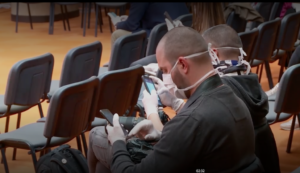
BR: I know the situation in the region and must say that when we advocated for the media pool we had journalists’ safety in mind. It all started well, but now the idea that was supposed to protect reporters has turned into a form of censorship. Compared to Repubublika Srpska there were more problems in the Federation, including authorities not answering to questions sent by email or complete closure of press conferences. I noticed three phases in the process: First, the government responded well by forming media pools as a safe way of reporting, allowing web streaming to all media and unhindered access to interlocutors. All questions were read out, there was no selection. Then, as the number of the infected and the people who passed away started increasing, and all weaknesses of our health system came to light, the limitations started. Questions were pre-selected, many were ignored despite their importance and/or give vague half answers. Now in Sarajevo – Crisis Staff of Federation BiH we have a situation where three journalists – chosen by the media through consensus – are allowed presence at the conferences, while others send questions by email until 10 am and Crisis Staff decides what will be read out and answered.
SF: But the practice is not consistent, it differs among entities. How do you compare them?
BR: As it always is with BiH, there is no consistent practice country wide. Actually, in parts of Federation we have press conferences without journalists – like in Mostar where, in an unexpected and a move on the border of legality was made: the Crisis Staff banned journalists from the press conference completely. Why? Because journalists started asking questions about tender procedures for respirators, tests, medical kit, protective gear… questions that are of public interest. But the institutions are not happy, they always try to draw attention to the health crisis from and from the manner in which the budget is spent to fight it. We reacted strongly, requested Ombudsman intervention, but are still waiting to learn if the decision is overturned.
SF: There have been reports about potential abuse of the pandemic to further limit media freedoms. On March 19 Republika Srpska announced its intentions to fight disinformation and panic. Almost a month later, the Decree was withdrawn. What is the current situation?
BR: BHJA and other actors reacted strongly and advocated for its withdrawal because we recognised how it can be used against journalists. To be honest, I really didn’t expect that RS will withdraw its decision. We wrote to the Ministry of Interior asking about the status of the cases – the Ministry requested suspension of misdemeanour proceedings against 18 persons initiated under the Decree. It is important to note that all cases were against citizens. Still, before the pandemic, it was the Federation that had more media freedoms – now it is the other way around.
SF: What do you mean?
BR: In RS there is a centralised system that functions much better – the Crisis Staff has made it clear what are the responsibilities of the republic and what of of the municipalities. Journalists seem to be more satisfied with the access to information than in the Federation. It is not perfect, but compared to situation in the Federation it is better – there the questions are being avoided and the public is denied information or access to press conferences in a very direct manner. Regarding the RS Decree about fake news – quite soon after the RS decision to withdraw the Decree, in Stari Grad Sarajevo the Crisis Staff announced an order of “forbidding the presentation or transmission of fake news or allegations that cause panic or severely disrupt public order or peace” through “media outlets, social networks or other media of similar means”. The penalty envisaged up to 4,500 EUR for media and 1,500 EUR for citizens. So, while one part of the country recognised it has move away from such practice, in other – the same order is announced. At the same time the Government of the Federation of BiH, through the Ministry of the Interior Affairs and cyber criminal units started implementing measures that include monitoring and supervision of information shared through social networks. The key problem is that the police are given powers to decide what is and what is not spreading of false news ad panic and what is and what is not freedom of expression. That is unacceptable.
SF: What was BHJA reaction to this?
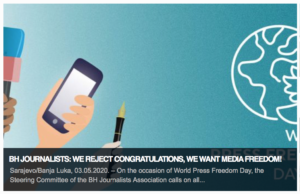
BR: The state of emergency does not suspend media freedom and the rule of law! BHJA reacted publicly by issuing five protest letters and statements. We requested that all journalists are provided with requested information, to allow journalists to report in a fair, objective and balanced manner about issues of public interest. But, you see the situation changes day to day. It is not possible to react on all violation of media freedoms… I have a feeling that the struggle is still one step forward, two steps back, as I am afraid, it is all over the world when it comes to media freedoms.
SF: Then there are economic effects of the Covid-19. The survival of media is endangered in a way not seen before. There are talks about possible state aid to media to overcome the crisis. In other countries economic help packages, though with some resistance, included media. What is the situation in BiH?
BR: BHJA believes that the most important thing at this point is how to help the media outlets to survive economically. Since the beginning of the state of emergency, many have been left without significant funding sources. Withdrawal of large advertisers very quickly lead to layoffs in Oslobodjenje in mid-April, with ten more media announcing similar measures. Together with the Centre for Civil Society Promotion we are going to organise an online conference focussed on economic measures to help media. An expert will be engaged to analyse the economic damage suffered by the media and based on the findings we will ask of our government to create a media help fund. We are also producing an online program whereas the representatives of the Council of Ministers will answer journalists’ questions about economic support to media. It is very important to talk about this publicly as we believe that the government will establish funds and support media, but only those it controls politically and in a non-transparent way. The state must provide aid to media, if it doesn’t we will call upon all media to boycott press conferences and other events organised by the authorities.
SF: You have been following the situation closely. As in other countries, there protective gear is in short supplies. BHJA managed to secure a significant number masks for media professionals. How did you manage that?
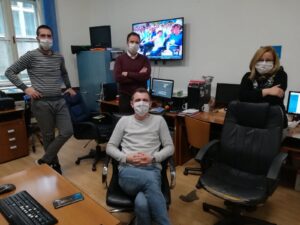
BR: It is important to understand that once the protective masks arrived to Crisis Staff they were distributed to all but journalists. No one asked our colleagues in Konjic, Jablanica, Mostar, from small radio stations if they have or need them. With support of three private companies, Prevent Group, HIFA Petrol, Alumni company from Zenice, BHJA has distributed medical kits with 3,600 medical masks and 1000 pairs of protective gloves to around 250 media outlets within BiH. We are also in contact with women from Brcko, Konjic and Mostar who started producing home-made masks of very high quality. We are talking to them about purchasing medical masks for journalists and other media workers who live in their areas. I have to add that CSO Woman for Woman from Konjic, recognising how important journalists’ work is, distributed masks to media in Konjic and other towns free of charge.
SF: BHJA has also been very active online in promoting safety tips and guidelines.
BR: Indeed – we produced a series of press statements, videos, infographics, and guidelines for media professionals about reporting about Covid-19, but also what should editors and media managers pay attention to. Their reach was significant; it was shared not only in BiH but also in other countries of our region. The good thing is that we share the language. Since so many layoffs are expected we produced material, including a webinar, to raise awareness of what are the labour rights of journalists. We also supported IFJ, EFJ and ETUC Campaign to provide the special measures for the protection of journalists working in the field and within the media outlets, with a focus on journalists’ safety, work in shifts, online work at home…
SF: BHJA is one of the first journalists’ associations in the region to introduces systematic free legal aid. Free Media Help Line provides such aid to journalists, members of BHJA – what can you tell us about the type of advice BHJA provides now, during the pandemic?
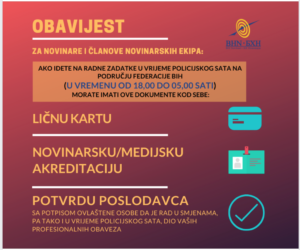
BR: Our Free Media Help Line has been offering free legal aid and advice to media employees since 2004. Since the beginning of the Covid-19 pandemic, we have been contacted by 14 editors and journalists from nine media outlets. They reported different types of problems, form inability to obtain information of public interest from the crisis staff and health institutions, to banning journalists from press conferences, violation their freedom of movement to violation of labour rights. In all cases BHJA responded immediately and appealed to the competent authorities to enable all media outlets to have equal access to information of public interest, as in the example of the Clinical Centre of the University of Sarajevo. We also reacted alone and with the SafeJournalists.net in case of arbitrary decision by the policemen of Tuzla Canton to ban journalists from filming and recent pressures by Fahrudin Solak, director of the Federal Civil Protection Directorate against media that reported about suspicious purchase of respirators.
SF: Going back to journalists of BiH, members of your association – what are BHJA plans for the coming period? How will BHJA help its members to, at least, to minimise the effects of the pandemic?
BR: The most important thing is to continue with legal support and advice to our members, but that is not the only thing. We are negotiating with a team of experienced clinical psychologists to provide online psychological support and advice, as well as medical supportto journalists, freelance journalists, editors, cameramen and photojournalists. They are under high professional stress, working more than 12 hours a day in a very difficult circumstances. We are also talking with two associations of psychologists in Sarajevo Canton and in Banja Luka to help them to organise online support for journalists who need psychological support. We hope to get a project that will secure support to journalists and other media professionals up to 6 months after the pandemic, or the state of emergency, ceases. We expect that then – when we try to go back to normal, the problems and challenges, reaction to stress will hit us.
SF: We are entering May, the measures against Covid-19 worldwide are now under revision. But the effects of pandemic will be felt much longer. Are your concerned that there will be further limitations of media freedoms in post-Covid-19 world?
BR: The situation is a complex mixture of different challenges that doesn’t only effect journalists and not only media freedoms. Freedom of expression is at risk, too. In the Federation there are five cases reported to the cyber crime unit for fake news on social media and additional seven brought by the prosecutors in RS. All are against citizens. It is a very slippery road that can lead to illegal surveillance of journalists and citizens on social media. Its effect is limitation of freedom of expression. Censorship based on spreading Covid-10 related fake news and spreading panic must be fought in principle. We are calling for these cases to be dropped.
So we are fighting for media freedoms every day. It is not a phrase – we must do it from different positions: journalists, media, associations of journalists, CSOs – society as whole. In long term we have to invest a lot into this, but on daily basis, sometimes it is difficult because the government is using every option to limit media freedoms. We hope that the authorities in BiH will understand that the state of emergency and pandemic cannot be used as an excuse to introduce censorship, restrict freedom of access to information and media freedoms. And if it is, as the emergency ends we will fight for full re-introduction of all our rights and freedoms.
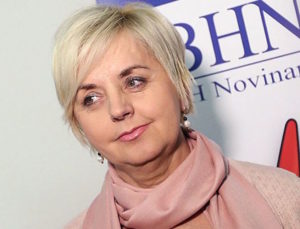
Borka Rudic isa professor of philosophy who began her journalism career in 1985 as a correspondent for Radio Sarajevo (BiH) and Večernji list from Zagreb (Croatia). From 1992 to 1995 she worked as a war reporter for RTV BiH and for the daily newspaper Oslobodjenje. In a long journalistic career Borka reported for numerous media outlets in the former Yugoslavia (Beta News Agency, Belgrade and political magazine Tjednik, Zagreb) as well as the National Danish Radio and Radio Free Europe. Borka was the first editor of OSCE Radio FERN in Sarajevo in 1996. She has been the manager of several media projects focusing on peace and trust building in the Balkan Region (Fresta Regional Radio Network, Project Together, etc.). In addition to her carer as a journalist, Borka worked as a professor of radio journalism at the High School of Journalism, as well as a certified trainer in the field of conflict resolution methods in journalism, journalistic ethics and diversity reporting. For the past 15 years, she’s been a member of the BH Journalists Association team with daily commitments dedicated to the media freedoms and protection of journalists’ rights.
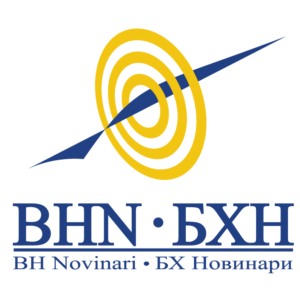 Association of BH Journalists is non-political and non-profit journalist association based in Sarajevo, Bosnia-Herzegovina consisting of journalists, freelance journalists, journalism students and other media employees whose main profession is journalism. It provides free legal and advocacy support to Bosnian editors, staff or freelance journalists and other media outlets.
Association of BH Journalists is non-political and non-profit journalist association based in Sarajevo, Bosnia-Herzegovina consisting of journalists, freelance journalists, journalism students and other media employees whose main profession is journalism. It provides free legal and advocacy support to Bosnian editors, staff or freelance journalists and other media outlets.


